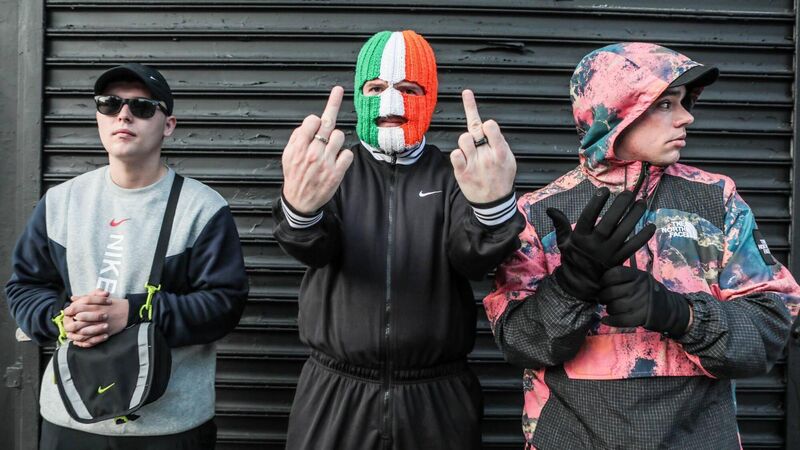Kneecap on new music, a united Ireland, and how they became part of a Fassbender film

Kneecap play Cork City Hall in December. Picture: Patrick Glennon @ptgphotos
Of all the headlines that Belfast gael-rappers Kneecap have generated in their controversial career to date, the latest may have been the strangest.
Forget the time they caused outrage in the UK press for leading a pub chant of “Brits out” on the hallowed ground of a hostelry recently occupied by some British royals, or the Lego set featuring Kneecap with a burning PSNI van behind them, or the tour poster of a cartoon Arlene Foster strapped to a rocket.




